
Our hallways are not only warm and welcome entrance points to our homes, but they’re also a prime storage spot, housing coats, shoes and bags. This means that avoiding hallway storage mistakes is important – and implementing clever hallway storage ideas is essential.
Because of their functional purpose, and the fact that they can be one of the smallest areas of our homes, it's also easy for our hallways to get cluttered and messy. But given that they house so many essentials, it’s vital to avoid getting storage in this space wrong. In fact, avoiding a few of the most common hallway storage mistakes will ensure that you’ve got a streamlined, stress-free space from which to enter and depart your property.
To uncover the hallway storage mistakes you’ll want to steer clear of, we spoke to furniture, decluttering and organisation experts who have seen such mistakes for themselves. Taking heed of these will ensure your hallway works at its best in the long-run, and fits all of your essential items in an organised way.
10 hallway storage mistakes to avoid
Hallway storage mistakes are easy to make when life is busy and chaotic – but making a few small tweaks as suggested by the experts below can help to make this area of your home run much more smoothly.
1. Not using multi-purpose furniture
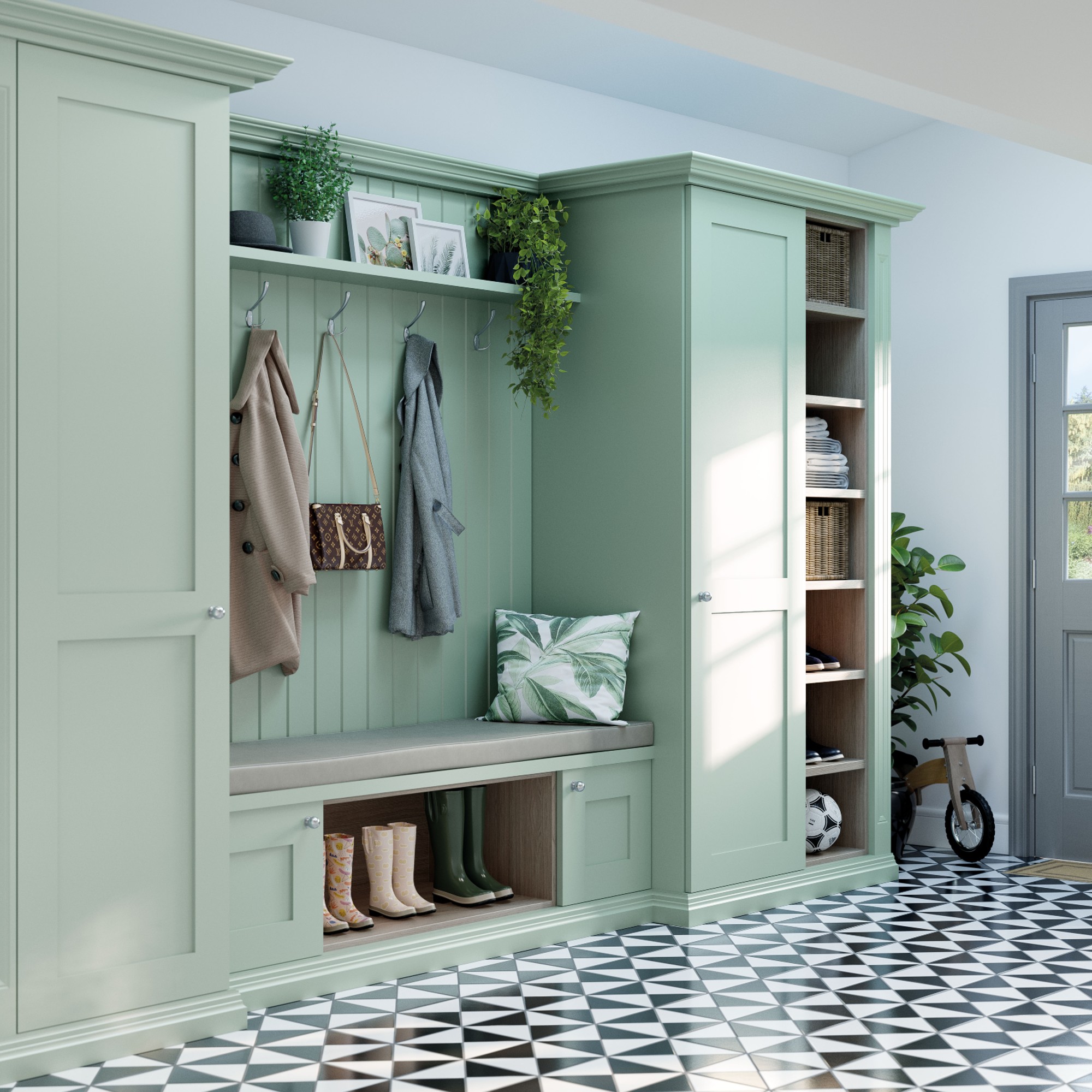
Space is often at a premium in our hallways. This means that choosing furniture that can serve multiple purposes - by being a design feature as well as a storage space, for example – is vital. Adam Brown, Director of The Painted Furniture Company, explains, 'One of the biggest hallway mistakes is not utilising multi-purpose furniture. Hallways often lack space, so it's crucial to maximise the functionality of the furniture you choose. '
Choose furniture that can serve more than one purpose. Emma Rostron, professional declutterer and founder of One Less Thing, suggests, 'An entryway bench, for instance, is a fantastic way for people to sit and remove shoes, while also offering storage space for things like gloves and hats.'
Adam also suggests, 'A console table is a versatile piece of furniture that can provide both storage and display options.'
2. Not having a designated home for everything
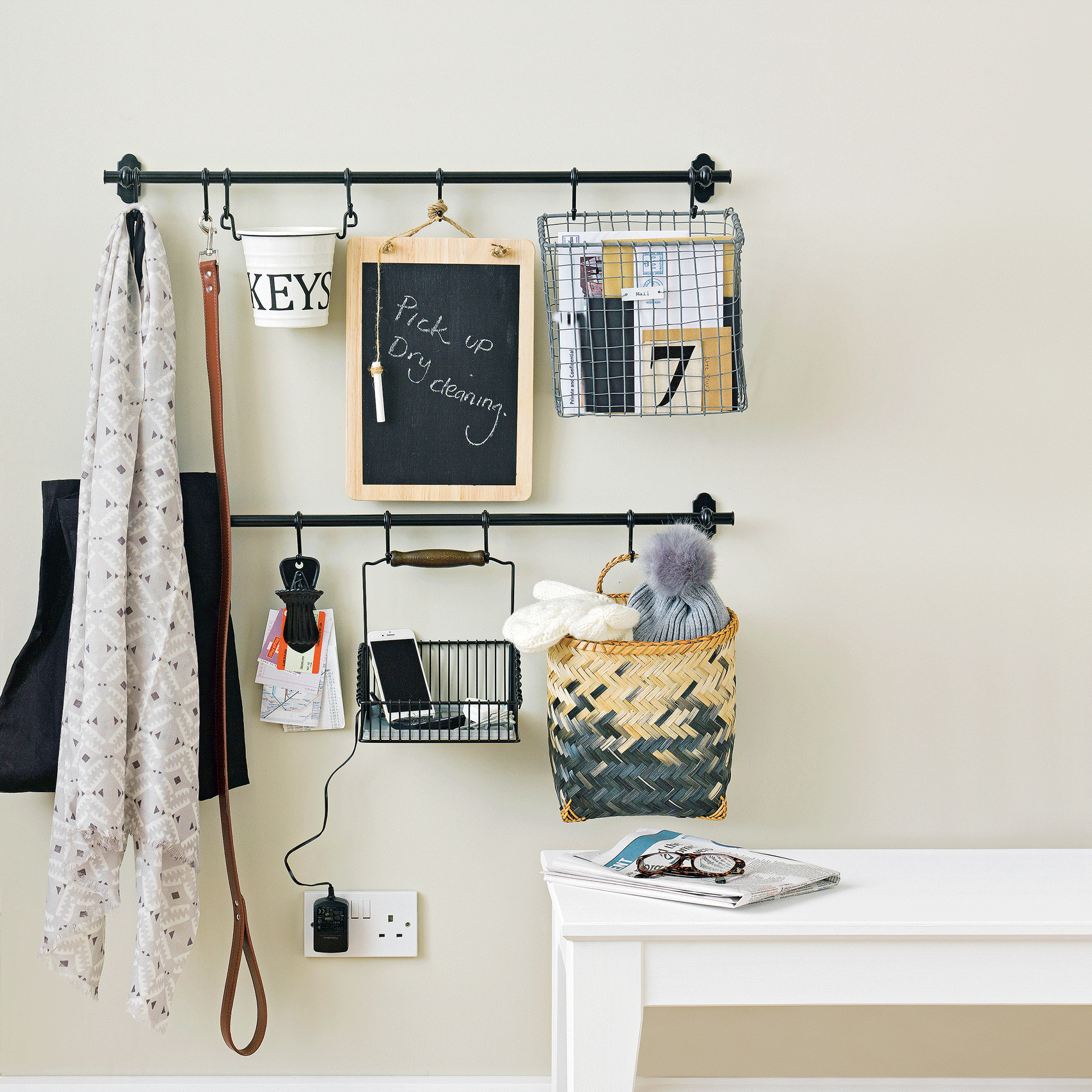
'One other common mistake is not having designated storage spaces for bags, shoes, and other frequently used items,' Adam explains. Why? 'Leaving these items in the wrong place can create clutter, and make it difficult to find what you need when you're rushing out the door.'
But there's an easy fix – all you need to do is ensure that every item that lives in your hallway has a place to be stowed away when not in use.
Adam suggested that this may be 'a coat rack with hooks for bags, or a designated shelf or cubby for shoes.' Pick a home for each category of items, and ensure the entire household knows this location.
3. Not having a console table
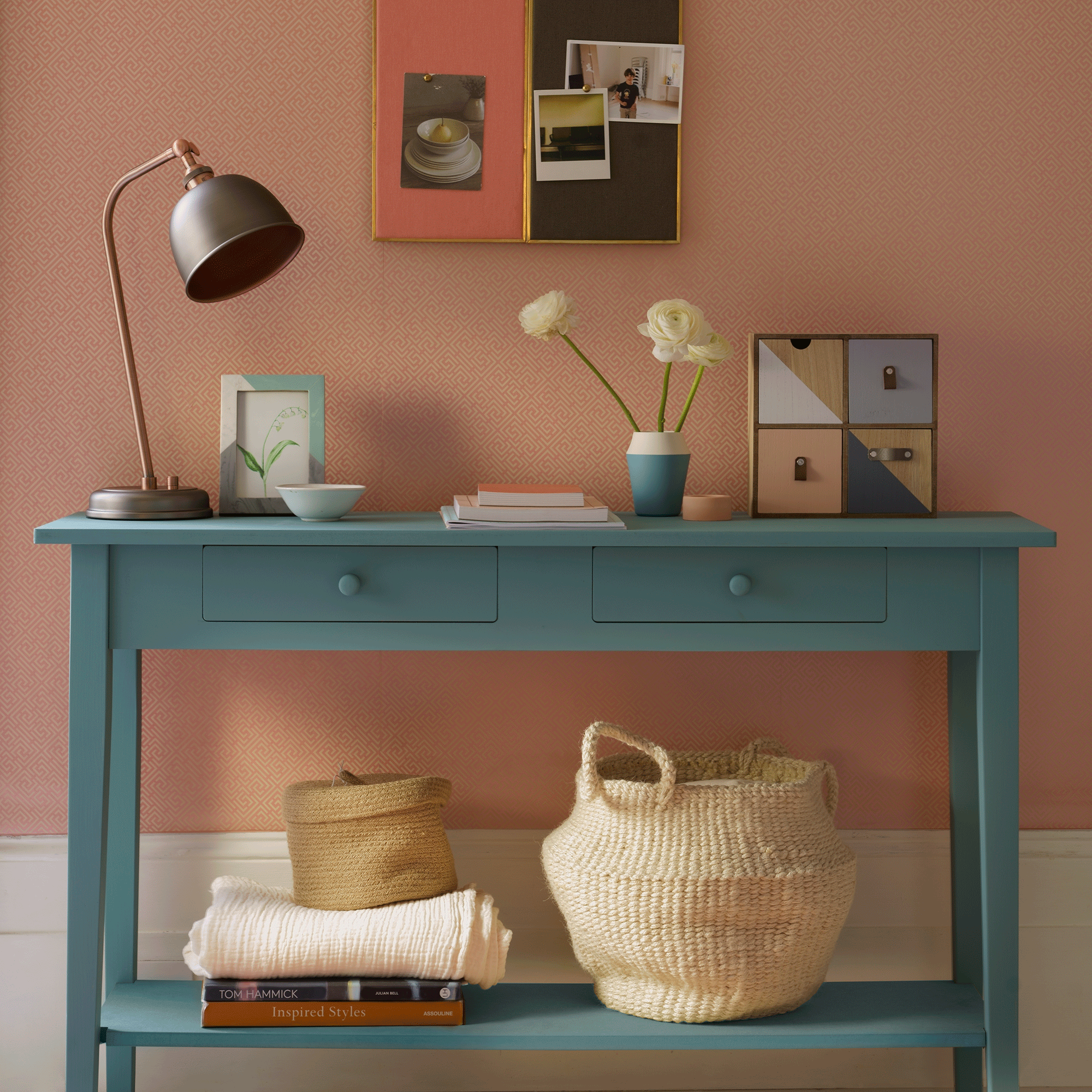
Perhaps unsurprisingly, the one piece of furniture you won't want to be without in your hallway is a console table. Without one, you’ll likely have nowhere else to store essentials such as keys, post, and other little trinkets.
Adam explained, 'A console table helps keep your hallway organised by providing a designated spot for essential items, reducing clutter and creating a clean and inviting space.'
He continued, 'Secondly, it adds a decorative element to an otherwise overlooked area, making your hallway feel more welcoming and visually appealing.'
In fact, a thin console table is one of the best narrow hallway ideas, or small hallway ideas, as Adam explains that it 'maximises storage in a narrow space, allowing you to make the most of your hallway.'
4. Storing unnecessary items in your hallway
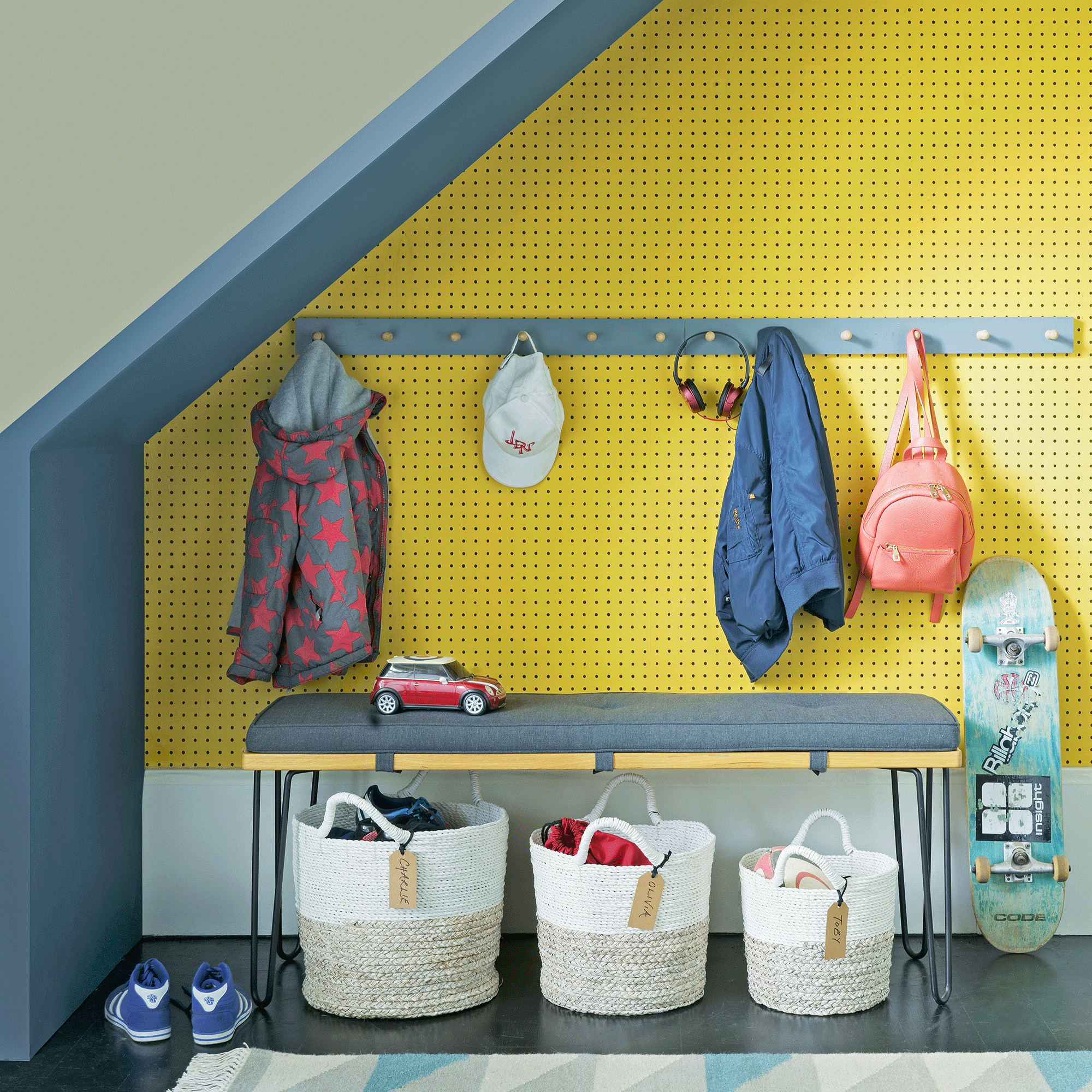
Put simply, not everything needs to live in your hallway - and it’s a mistake to try and store more items in there than absolutely necessary.
Professional decluttering and organisation expert Vicky Silverthorn, working with Vintage Cash Cow, suggests pondering whether some items would be better living elsewhere in your home.
'For example, think about your shoe collection,' Vicky said. 'It makes sense to store your everyday trainers and work shoes in your hallway, but the heels you wear twice a year or the sandals that only come out during heatwaves don’t really need to be there.
'Free up precious space by moving these rarely-worn shoes to another location, such as under the bed, or in the loft.'
5. Not sorting hallway items seasonally
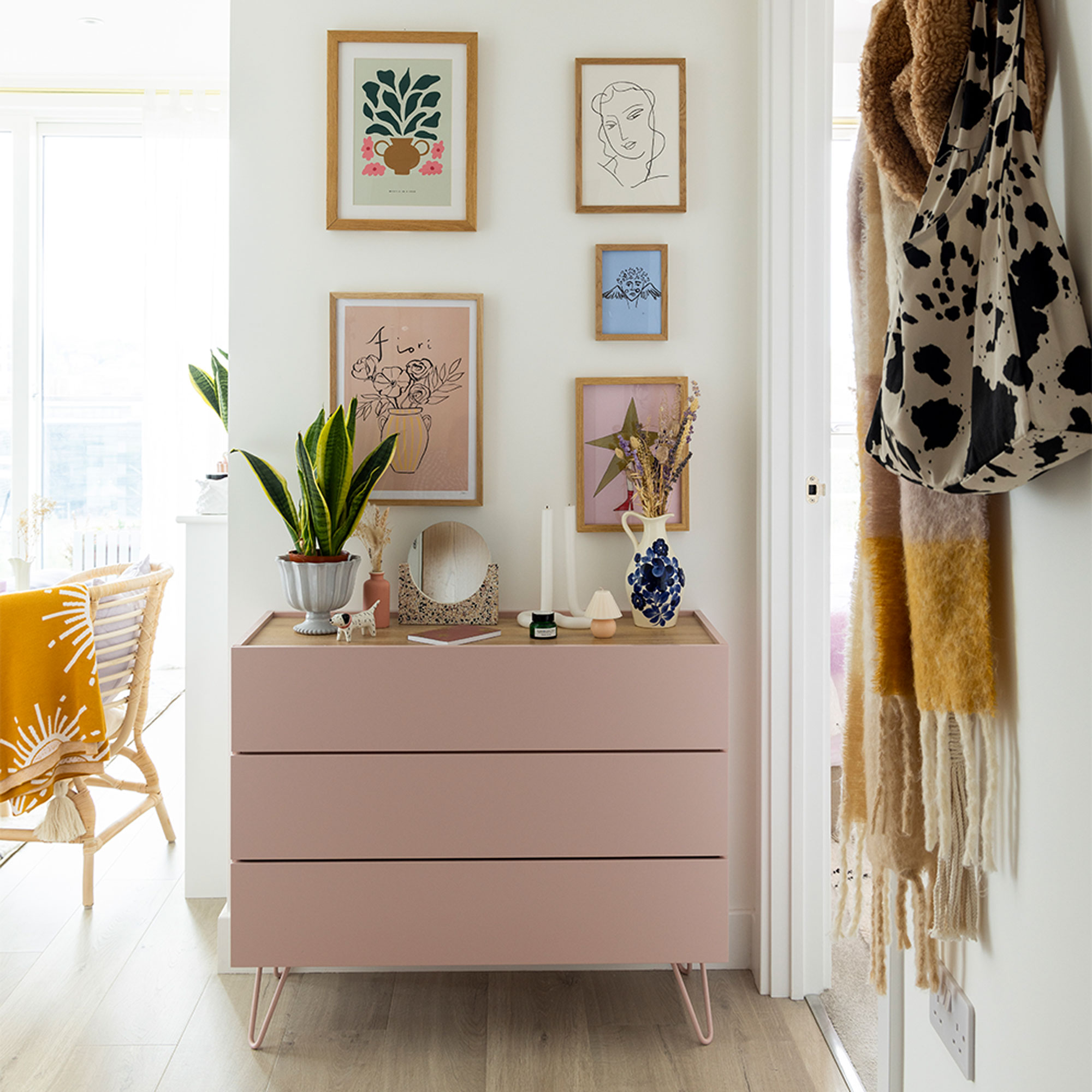
In a similar vein, Vicky also advises that one of the biggest hallway storage errors you may be making is storing items out-of-season items in this precious pocket of space.
If, for example, you store winter coats in your hallway during the summer, you likely won’t have enough room to have all of your summer essentials easily to hand.
'During the spring and summer, your winter coats and boots stash can be neatly stored in the attic. Come winter, your sandals can swap with them,' she said. 'This way, the things you need on a daily basis will be easier to access; saving you time and reducing day-to-day stress.'
If you do have enough room to store all of your outdoor items in your hallway year-round though, Vicky suggests that organising them properly is still essential. 'Keep in-season, regularly-used items in easy reach, at waist or eye level. Out-of-season items can be kept up high on shelves or stored out of sight in boxes.'
6. Not utilising available wall or door space
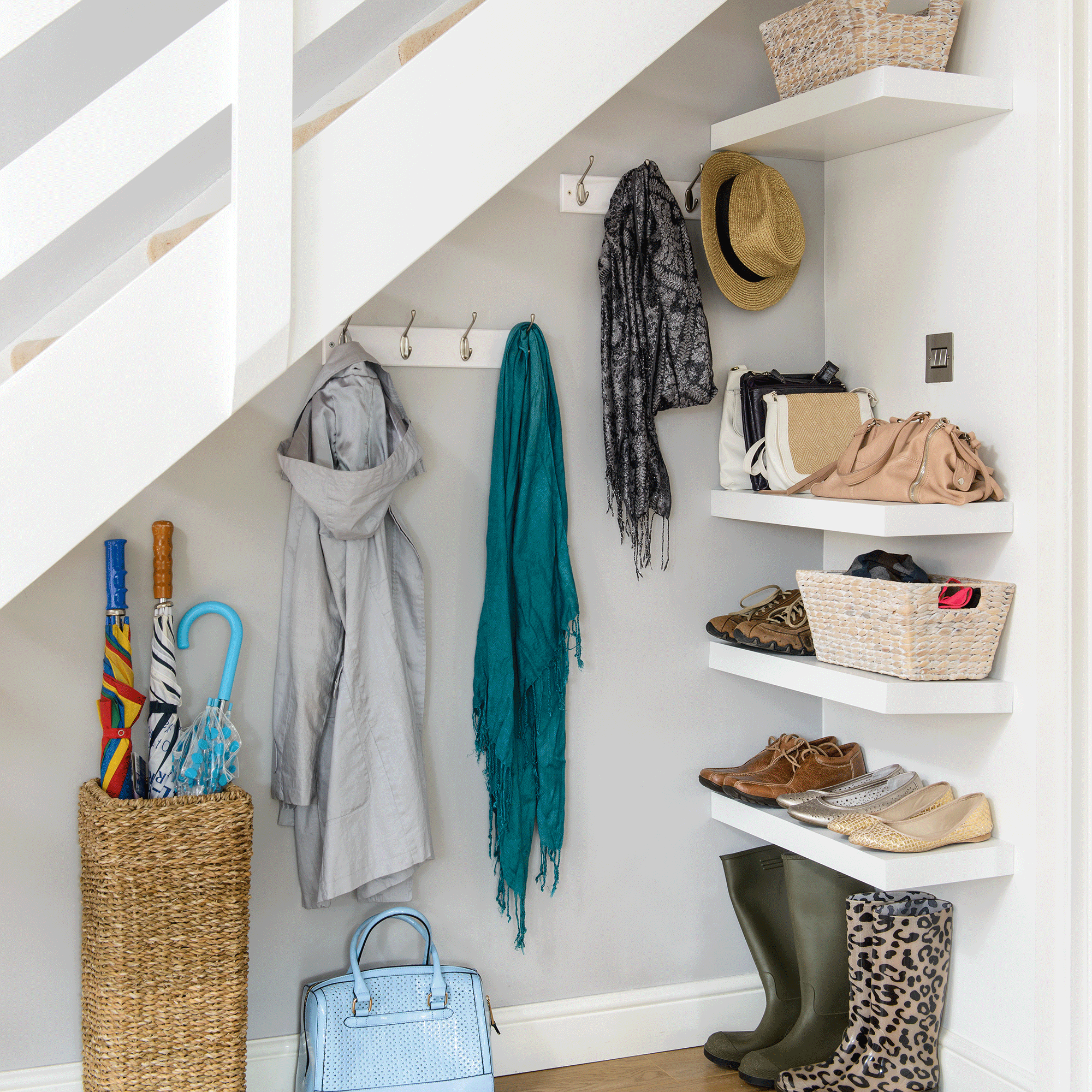
In tight hallways, every inch of usable space should be taken advantage of for storage purposes – which often means the backs of doors or walls. Emma said, 'Because entryway passages tend to be rather narrow with little floor space, it’s important to recognise any vertical space you may have.'
To make the most of this storage solution for smalls spaces, attach hooks to walls or the back of doors – or purchase over the door hanging hooks.
You can even buy hanging baskets that span almost the entire length of your door, which will allow you to store whatever you might like.
7. Housing too much clutter
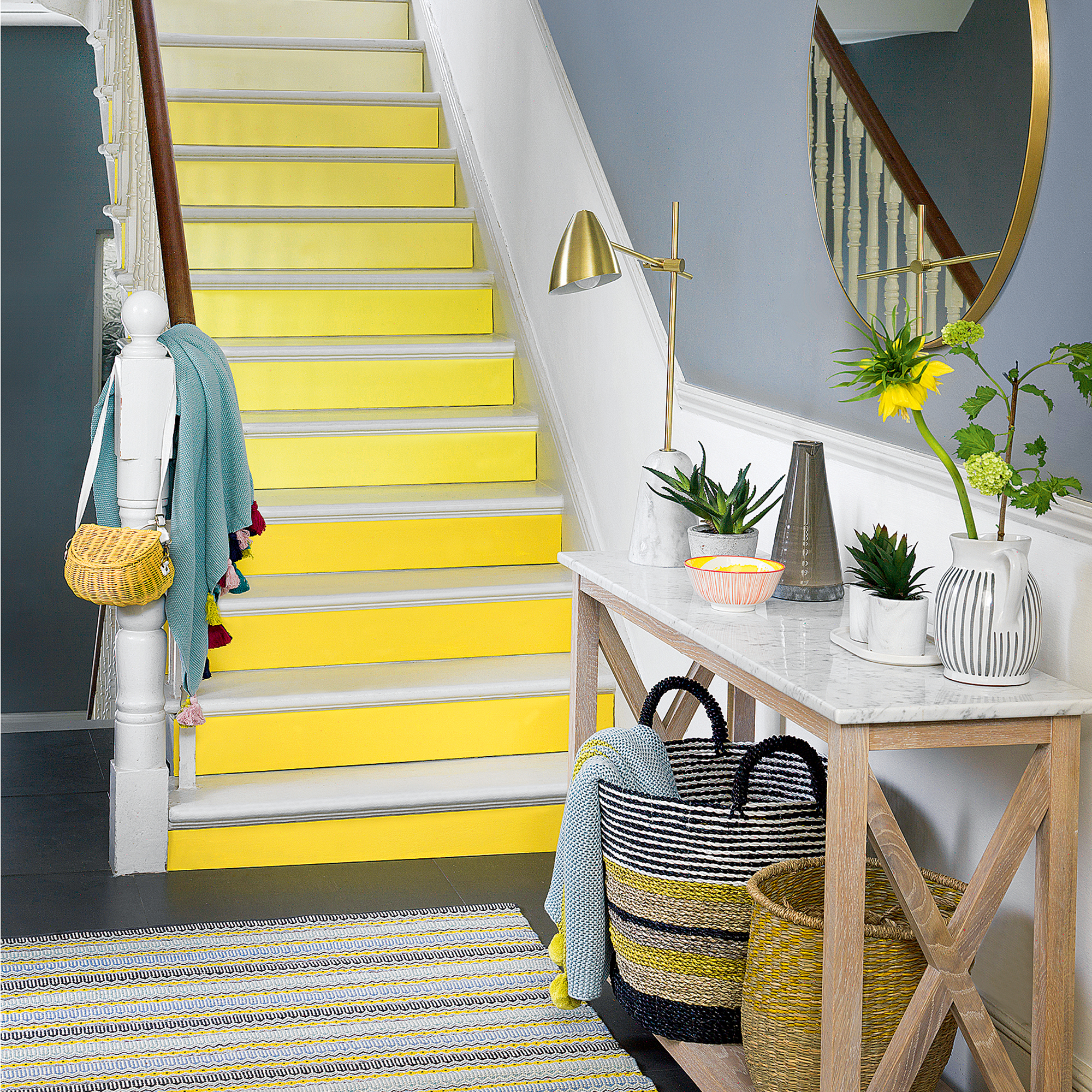
'A common problem with the hallway is that it becomes the space where you store all the odds and ends you otherwise don’t know what to do with,' Vicky shared. As such, one of the biggest hallway storage mistakes you can make simply having too much clutter in the space.
If you're struggling with storing your hallway essentials, decluttering is therefore a great way to solve the issue.
'Start by taking everything out of your hallway storage, be it a cupboard, box or trunk,' Vicky said. 'This will help you to objectively see everything you’ve got in there.'
'One by one, consider each item and ask yourself, have I used this in the past 6 months? Is this particularly special or sentimental to me? Will I, realistically, ever need this again? If you’ve answered no to all three questions, it’s time to get rid.'
8. Not using fitted furniture where possible
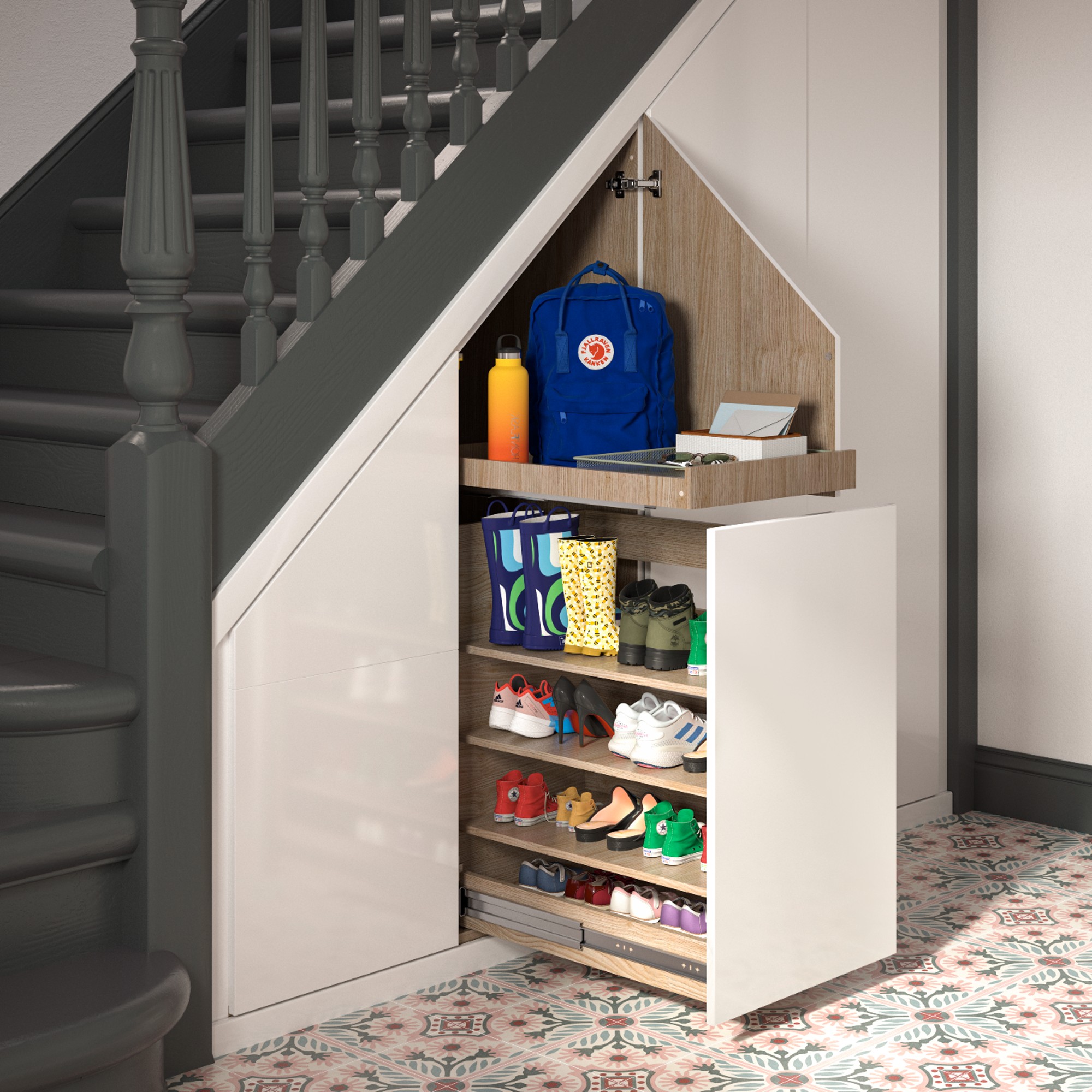
Though it isn’t possible for everyone, fitted furniture can make storing your items so much easier if you have the space and budget – particularly as free-standing furniture doesn’t utilise every inch of available space.
'When planning your hallway storage, take into consideration that there are several benefits to a properly designed bespoke fitted hallway wardrobe', Rachal Hutcheson, National Retail Manager at Sharps says.
'Unlike freestanding storage, the depth of a properly fitted unit can be adjusted to fit your space, with shallower solutions that utilise the space up to the wall internally available for narrower hallways.'
9. Using open storage systems
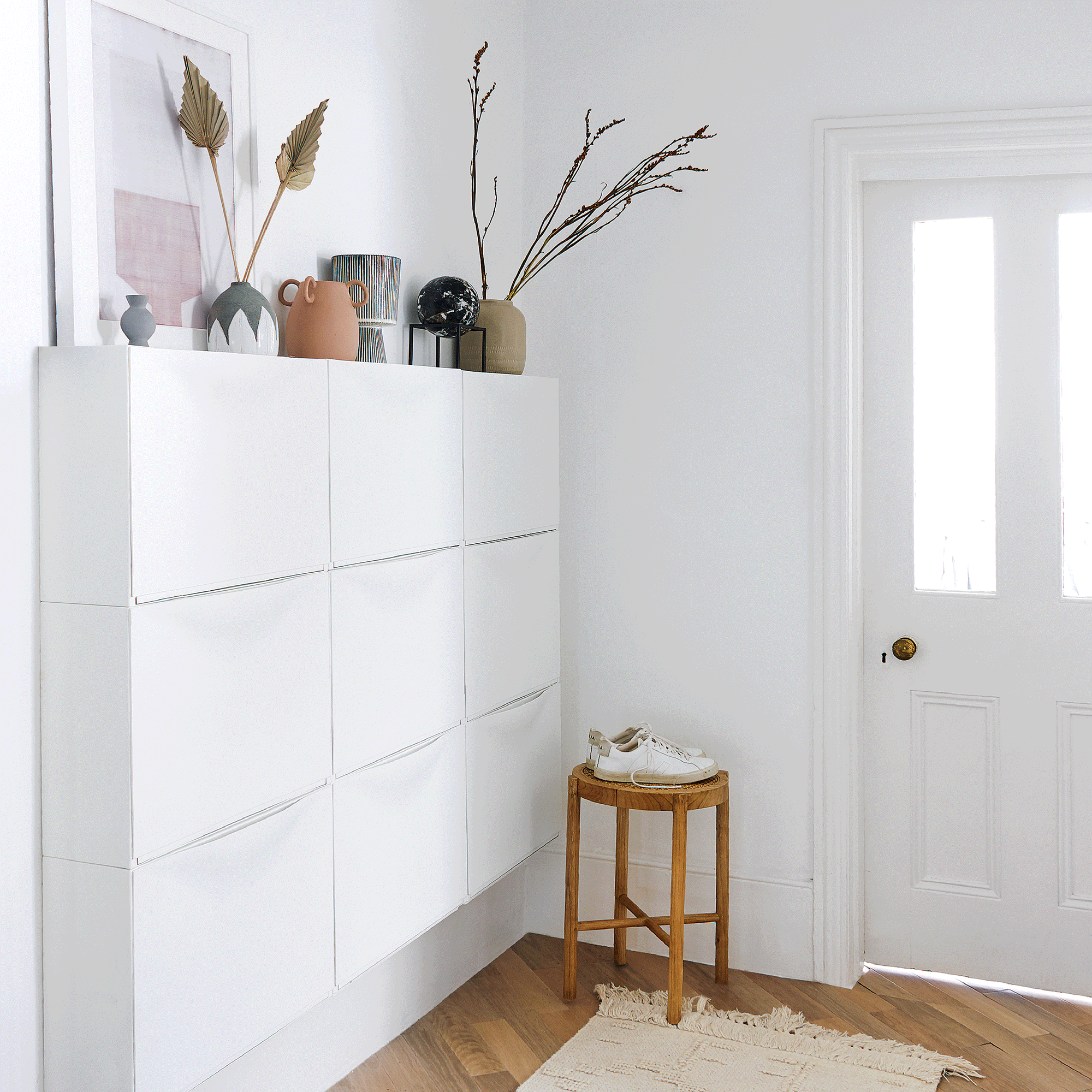
This may come as a surprise, but one of the most subtle hallway storage mistakes you may be making is using open storage systems – such as open shoe or coat racks – according to decluttering expert and interior designer Helen Sanderson.
Though they'll organise your items just fine, having your things out on display isn't necessarily conducive to a calm, soothing environment. 'Open storage systems just add to visual clutter, and require diligent tidiness,' she explained.
'Instead, use closed cupboards or store things elsewhere. A great way to utilise closed storage, where feasible, is to convert the understairs cupboard into a natty storage unit with a set of handy pull-out drawers.'
10. Storing items too close to the door
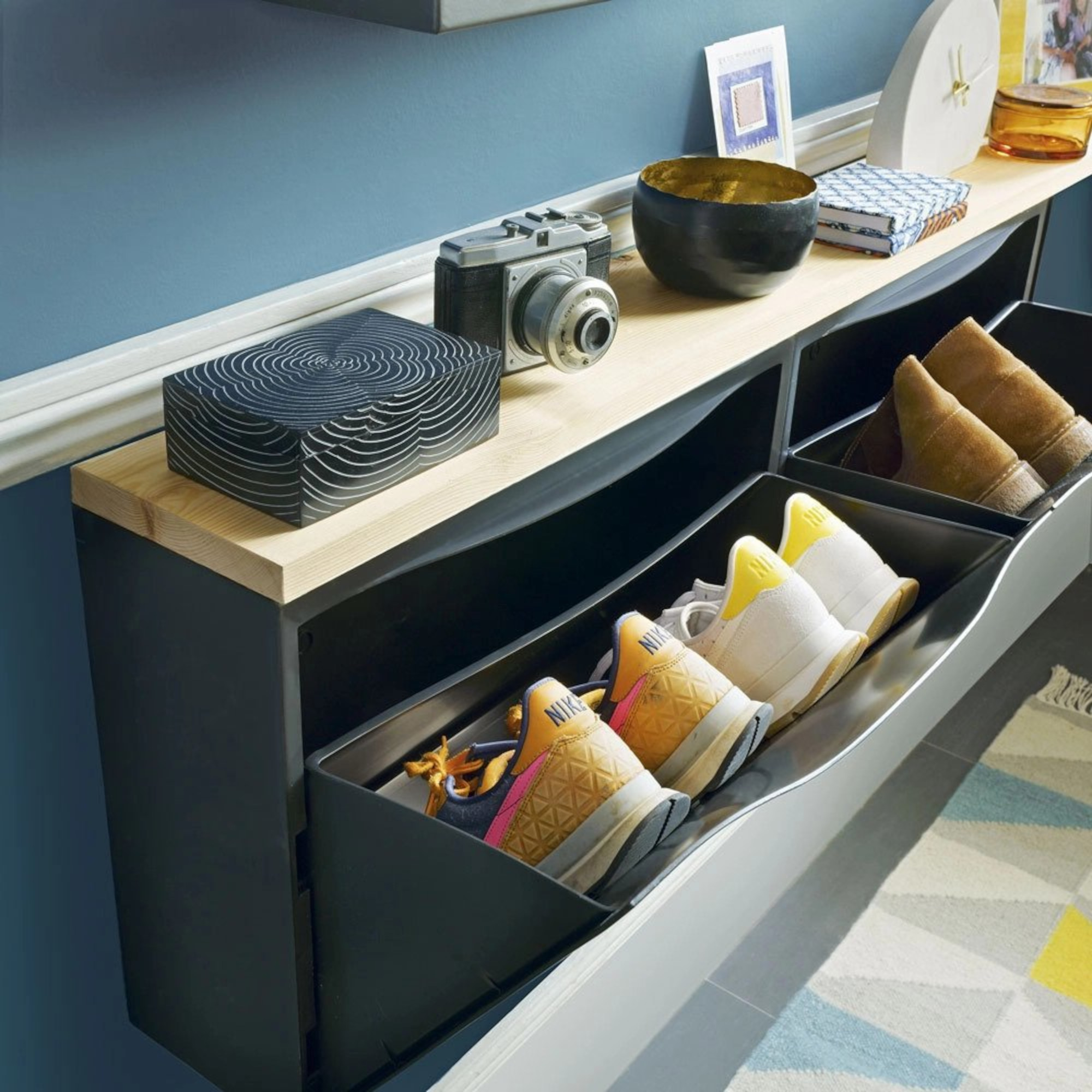
It's easy to get used to storing all of your most essential items super close to your front door – but doing this can hinder you from entering or exiting your home quickly and without obstruction, and can cause a serious build-up of clutter.
Instead, spread your storage solutions out across your hallway to avoid the congestion. And if you do have space close to your front door and want to make the most of it, Mike Shapland, Design Academy Trainer at Hammonds suggests, 'I would advise installing some shoe storage near to where you get ready to leave the house.
'This can range from slimline shoe cabinets to wicker baskets, depending on your taste and the room available. Also, add in a storage bench you can sit on to take your shoes off.'
Where do you put your bags in a hallway?
Bags are one of the many things we might want to store in our hallways, but placing them in an area where they won't disrupt your movement through the space is important.
'I strongly advise keeping your hallway as clear as is reasonably possible,' Helen said 'Keep bags close at hand, but not on view and certainly not clogging up the floor.'
She suggests keeping a small number of bags to hand in your hallway, but also shared that it may not be the best place for them all.
'Have one or two bags that you regularly use on a peg, but don’t use the hallway as a storage area for all your bags. For example, shopping bags are better kept in the kitchen or the car boot, while nicer bags can be stored in your bedroom wardrobe.'
Does an entryway need a table?
As the experts shared, not having a console table will leave you without one of the handiest hallway storage solutions. So if you're debating whether or not to get one, the general advice is that you'll make your life a lot harder without one.
Helen explained that this is because, 'if it is beautiful and functional, a console table can act as a handy landing station for incomings and outgoings, such as gloves, parking vouchers, car and house keys.' In fact, without a console table you'll need to store these miscellaneous items elsewhere, which could lead to clutter in other parts of your home, such as dining rooms or kitchens.
Simon Tcherniak, Senior Designer at Neville Johnson, also pointed out, 'Smaller tables and cabinets also allow more decorative touches to be added to the space, like houseplants and mirrors.'
However, it's important to not let this space get overrun. 'Make sure you schedule in a regular, ideally weekly, declutter of the hallway table and the hallway itself – maintenance is key here,' Helen said.







